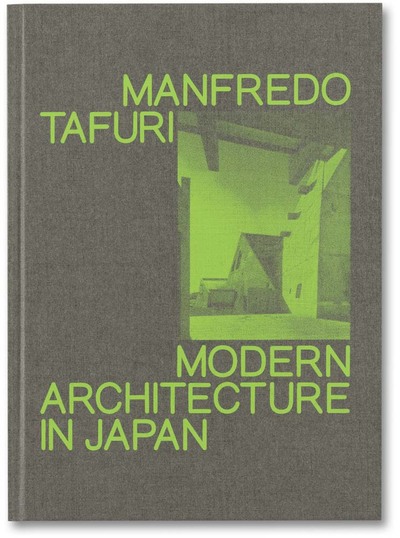Nous utilisons des cookies pour améliorer votre expérience. Pour nous conformer à la nouvelle directive sur la vie privée, nous devons demander votre consentement à l’utilisation de ces cookies. En savoir plus.
MODERN ARCHITECTURE IN JAPAN, MANFREDO TAFURI
EAN : 9781913620837
Édition papier
EAN : 9781913620837
Paru le : 1 oct. 2022
25,00 €
23,70 €
Disponible
Pour connaître votre prix et commander, identifiez-vous
Notre engagement qualité
-
 Livraison gratuite
Livraison gratuite
en France sans minimum
de commande -
 Manquants maintenus
Manquants maintenus
en commande
automatiquement -
 Un interlocuteur
Un interlocuteur
unique pour toutes
vos commandes -
 Toutes les licences
Toutes les licences
numériques du marché
au tarif éditeur -
 Assistance téléphonique
Assistance téléphonique
personalisée sur le
numérique -
 Service client
Service client
Du Lundi au vendredi
de 9h à 18h
- EAN13 : 9781913620837
- Date Parution : 1 oct. 2022
- Disponibilite : Disponible
- Barème de remise : NS
- Nombre de pages : 240
- Format : 0.00 x 15.00 x 20.50 cm
- Poids : 500gr
- Résumé : "Manfredo Tafuri (1935–1994), the celebrated Italian architectural historian, published L’Architettura Moderna in Giappone in 1964. At the time, Tafuri was twenty-nine years old and had not visited Japan. His slim volume on the country’s postwar architecture was the first in a series of guidebooks on contemporary architecture under the direction of Leonardo Benevolo. Translated into English for the first time, the book represents a rare outsider’s view of the metabolist movement and figures such as Kenzo Tange by one of the world’s most astute critics of the second part of the twentieth century. Tafuri’s ideas about Japanese architecture were primarily formed through texts, including magazine articles and contemporary photographs. How did Tafuri come to select the achievements of Japanese architects as the focus of his reflections on modern architecture? What happens when a historian of architecture relies purely on photographs for making judgements about a building? This new translation is accompanied by a series of commentaries on Tafuri and on Japanese architecture by Mohsen Mostafavi, Frederico Scaroni, Marco Biraghi, Catherine Ingram, and Ken Tadashi Oshimam, as well as a rich collection of images from the time of the original publication and more recent photographs. Together, these texts and images situate the reader in relation to both Tafuri’s scholarship and modern architecture in Japan, while preserving aspects of the character of the original Italian edition."


